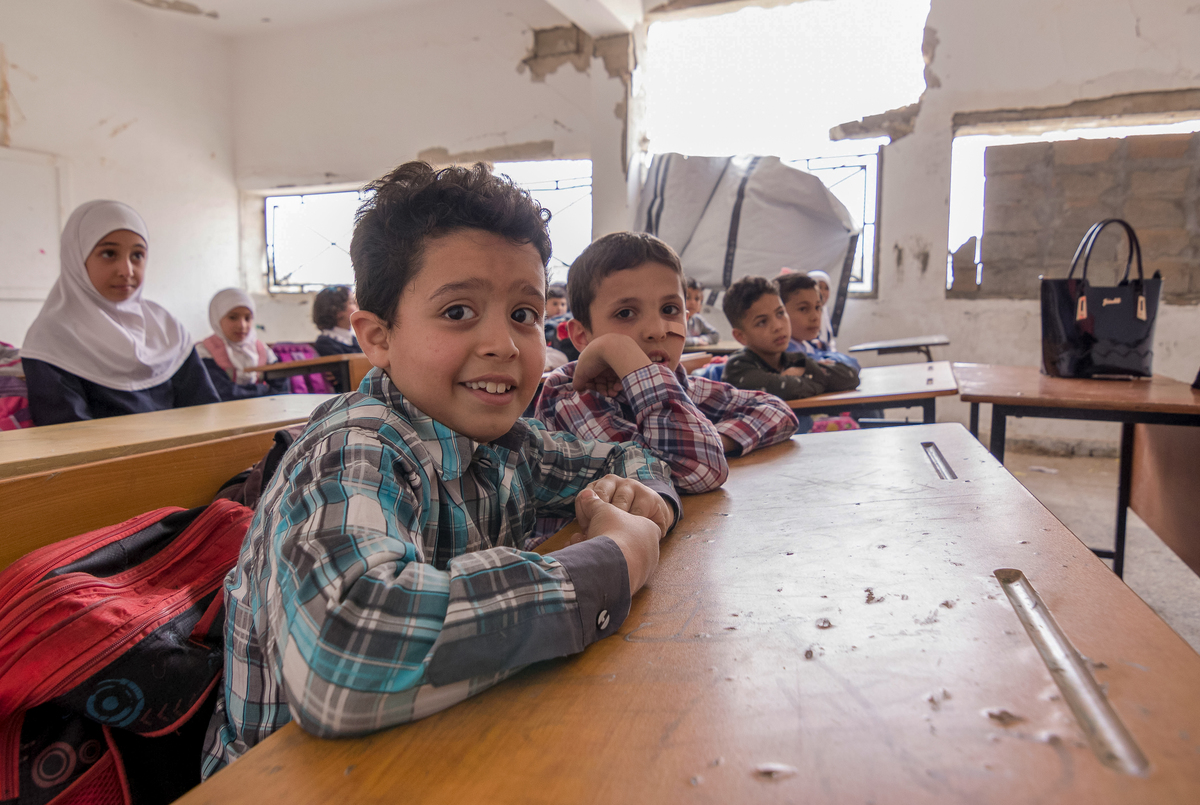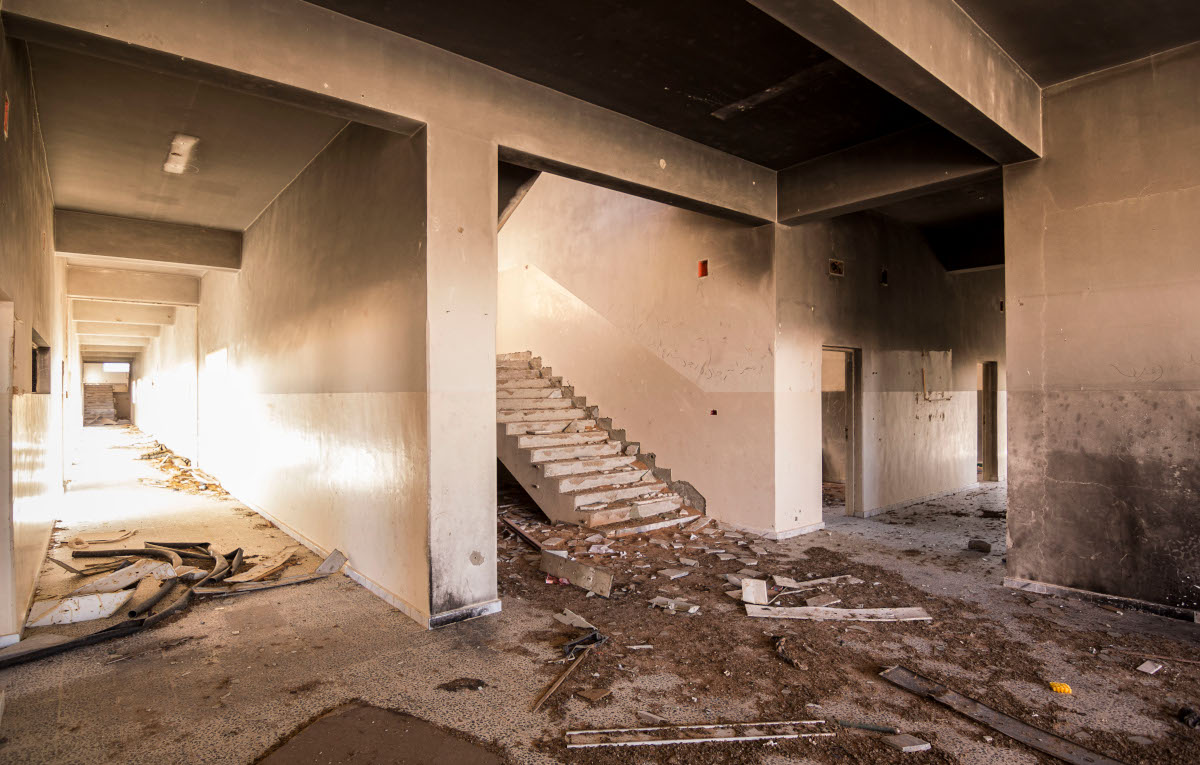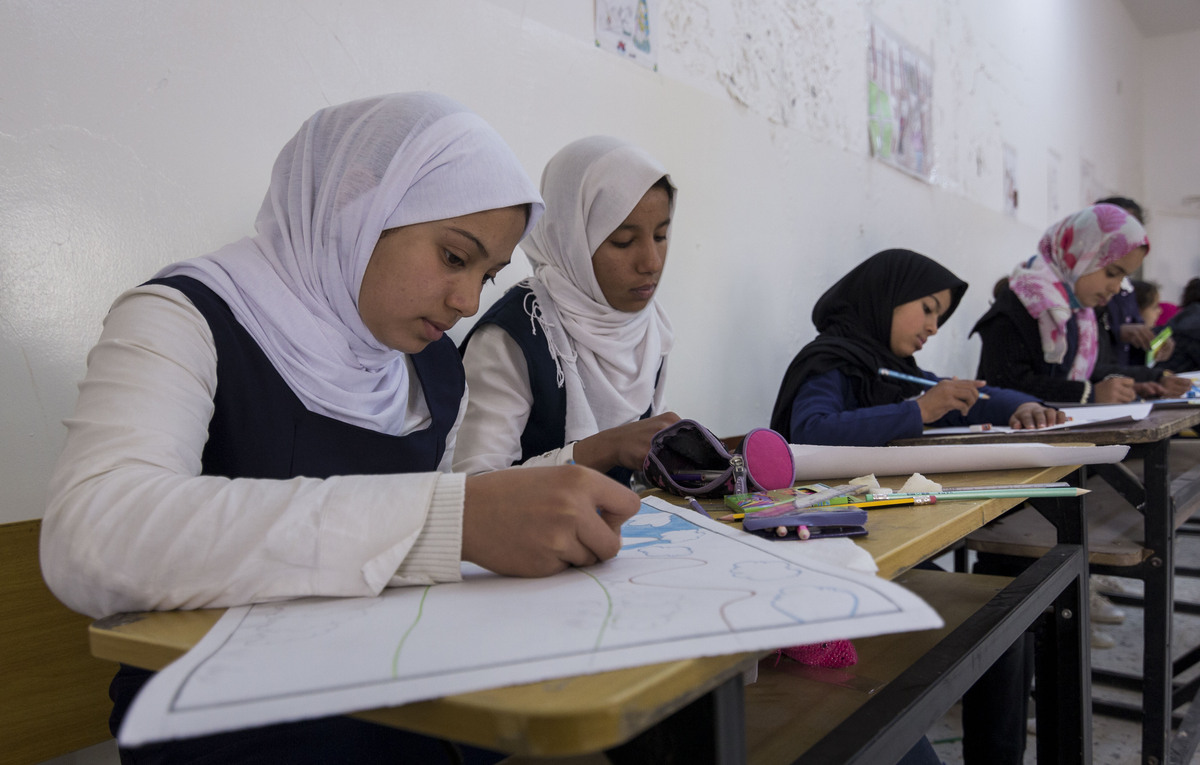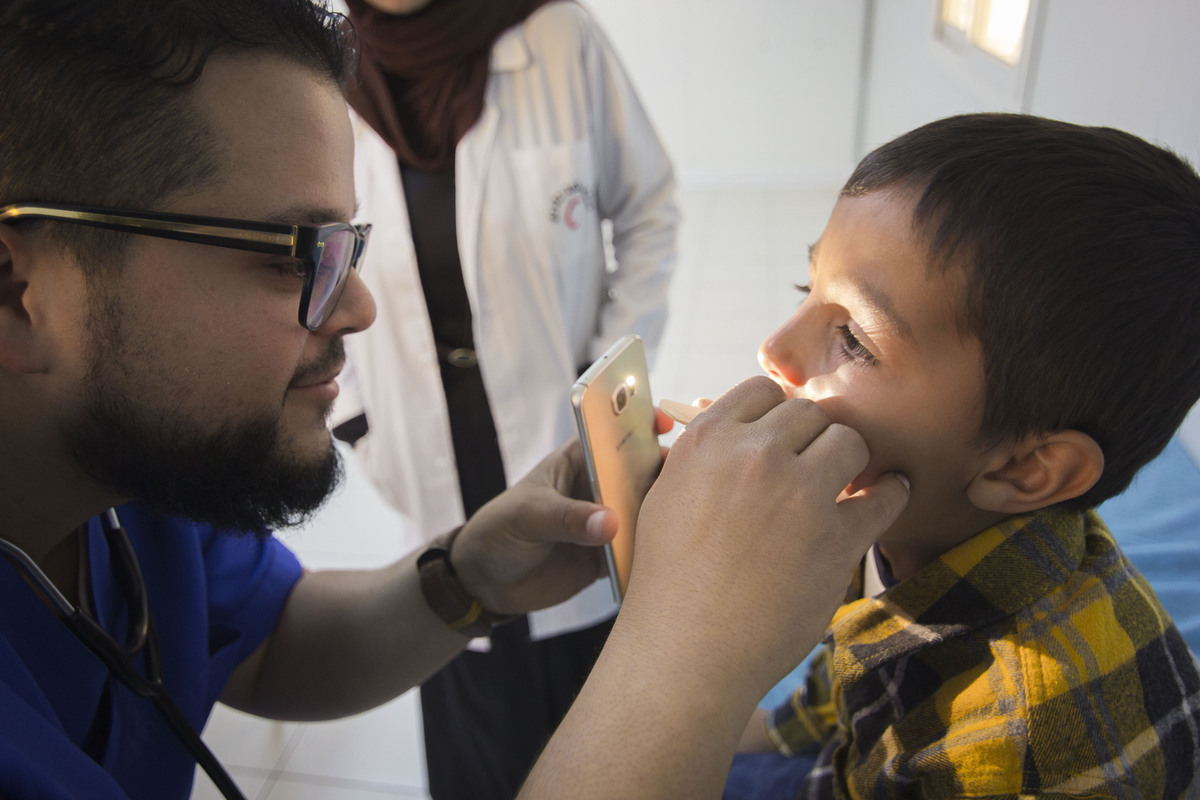In Libya, cities welcome back former residents displaced by war
May 11, 2023

The Al-Ma'iyfah School was the first school to reopen classes for students in 2016.
Global figures show the numbers of people forced from their homes but remaining within their own countries are rising exponentially. The number of internally displaced persons rose to 71.1 million in 2022, according to new data from the Internal Displacement Monitoring Centre (IDMC).
Beyond the numbers are human beings enduring enormous suffering and loss. Displaced people can face discrimination and exclusion, are cut off from their communities, and deprived of livelihoods and vital services for years or even generations. Displacement has far reaching implications not just on those who are displaced but the communities left behind and the ones where the displaced seek safety and services.
Over 60 percent of UNDP’s programming is in fragile contexts, including with large-scale displaced populations. It is grounded in our support to the 2030 Agenda on Sustainable Development and the UN Secretary-General’s Action Agenda on Internal Displacement.
The conflict that began in Libya in 2011 forced about a million people from their homes, mostly to cities such as the capital, Tripoli. Trapped in displacement, they struggled to find work, cover their basic needs, get a good education for their children, stay healthy and feel safe.
When hostilities began to cease, UNDP and its partners worked with national and local governments to create the conditions for voluntary return and to rebuild trust with citizens who had gone through years of civil war and displacement.

As residents gradually returned to their homes, the local council faced the urgent task of providing essential services and fostering stability in Tawergha.

Stabilization Facility for Libya has provided to the educational institutions of Kikla classroom seats, teachers' tables, whiteboards, administrative offices and chairs, and 80 school warehouses.
Bringing life back to a Tawergha
When Misrata and Tawergha signed a UN mediated peace treaty to end the conflict between the two cities in 2018, IDPs from Tawergha could contemplate returning, ending a seven-year long chapter of conflict and displacement.
“When the roads were reopened, I handed over my work in Tripoli, packed my equipment and returned to my city,” said Faisal Essa, who had fled Tawergha in 2011 along with 95 percent of its residents due to the heavy fighting.
Faisal and other people going back found their homes and infrastructure badly damaged and a fragile economy that made recovery even more complicated.
Jumaa also choose to return. “Our excitement quickly turned to a realization that life wouldn't be easy. Almost everything had been destroyed,” he said. Along with the destruction, returnees found there were no jobs, electricity, water, gas, transportation, and health and education facilities.
The local council faced the urgent task of providing essential services for those former residents returning. UNDP helped them re-establish services, create jobs and begin the process of creating a sense of community again.
"The situation has changed now with the availability of basic supplies and furniture. It is essential for the continuation of the educational process. We have begun to feel more satisfied with the existence of this new environment."Fatima Ali Mohammed, Arabic language teacher at the primary school level
Schools, hospitals and jobs vital for families
Among the work UNDP has supported is the installation of 40 solar-powered lampposts that has made residents feel safer. One of the lampposts is outside Jumaa’s shop. "Previously I had to close the shop after sunset, but now I can stay open until late,” he said.
With the support of UNDP, the local administration has provided help to small businesses that has seen the creation of over 200 jobs in Tawergha and rehabilitated three schools with over 500 students. More than half the previous population of 40,000 people have so far come home. “Tawergha has restored its life gradually,” said Faisal Essa.
The rehabilitation of schools in Libya has been pivotal in encouraging people to return to their home towns. Eleven-year-old Faraj and his family were displaced from the city of Sirte. “I couldn't believe my eyes. The school had been completely destroyed, reduced to a pile of rubble,” he said.
The municipal authorities in Sirte, supported by UNDP, undertook the complete renovation of the school building, both inside and out. Now, 500 students and 82 staff members are benefiting from the transformed learning environment.
“The school looks absolutely beautiful. I’m thrilled to continue my education and pursue my dream of becoming a doctor,” said Faraj. “I also love playing football and I’m incredibly happy to be able to play with my friends on the new field.”
The medical clinic for children in Sirte had been badly damaged in fighting. “We had no choice but to journey to Bin Jawad, which is 150 kilometres away,” said Awad Khalifa, a parent of two children. The clinic has now been restored and is fully equipped to provide services to the community once again.

Families that had returned to Kikla didn’t have access to health services. They were obliged to travel more than 50 kilometres for treatment.
From conflict to the road to recovery
UNDP's work in support of displaced people and returnees was initially part of the 2016-2022 Stabilization Facility for Libya (SFL), which helped national and local administrations across 24 municipalities. Over 500,000 returnees have benefited from improved infrastructure and better access to services, the capacity of municipalities has been supported, and local mediation has been strengthened.
“Our work in restoring communities and empowering internally displaced persons is not just about rebuilding infrastructure, but about rebuilding lives. By fostering resilience, providing essential services, and promoting local peacebuilding, we lay the foundation for a brighter, inclusive future,” said Marc-André Franche, UNDP’s Resident Representative in Libya.
The SFL was supported by Canada, Denmark, the European Union, France, Germany, Italy, Japan, the Republic of Korea, the Netherlands, Norway, Switzerland, UK and USA. UNDP continues to assist displacement affected people as part of the Strengthened Local Capacity for Resilience and Recovery Project (SLCRR), which is funded by the European Union.
A sample survey found 79 percent of residents were happy with the civil works and 60 percent of civil society organizations and local peace actors who were asked reported a good improvement in performance of local authorities.
Restoring trust, legitimacy and inclusion requires addressing the root drivers of internal displacement and empowering people caught in crisis. As in Libya, UNDP is supporting government and local authorities to ensure equal access to rights and basic services, promote socio-economic integration, restore security and building social cohesion that can deliver real change and sustainable solutions to internal displacement.
“Our work in restoring communities and empowering internally displaced persons is not just about rebuilding infrastructure, but about rebuilding lives.”Marc-André Franche, UNDP Resident representative in Libya

 Locations
Locations



